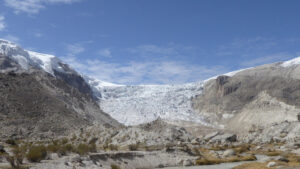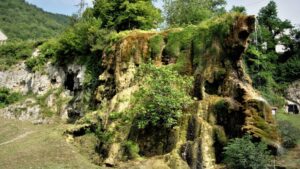FS 3.170: Approaching cold mountains through local knowledge exchange and collaboration
Details
Full Title
Diversifying expertise on cold mountain regions – Decentering scientific epistemologies through local knowledge and collaboration on eye level
Scheduled
—
Convener
Co-Conveners
Assigned to Synthesis Workshop
—
Categories
Cryo- & Hydrosphere, Adaptation, Socio-Ecology
Keywords
glaciers, cryosphere, indigenous knowledge, collaboration, knowledge resource
Description
Nothing captures common attention for anthropogenic global warming like the changing cryosphere: glaciers are receding, permafrost is thawing, snow in winter is becoming less reliable, avalanche patterns are shifting. To understand the socioecological implications of these changes, there is a need to listen to the people who have lived with snow and ice for centuries. Their intimate knowledge adds cosmological, sensory and practical dimensions to the technoscientific approaches of glaciologists. Local communities are the ones who have to adapt to changing scenarios, and often do so in ingenious ways. Exchange with them – or the absence of it – influences the way scientists do and communicate the relevance of their work. We invite contributions from mountain ranges around the world, featuring different disciplinary backgrounds, and especially welcome voices of underrepresented communities and non-conventional research designs. What are instructive examples of bottom-up approaches to ice and snow (high pastures, mountain passes, etc.)? Which resources can be drawn upon? What kind of twists and turns does Indigenous knowledge take when trying to reach the international scientific community? How can exchange between different types of cryo-experts happen on eye level? We aim to challenge and advance cryosphere sciences by widening their epistemological base. Initiating avenues for exchange and collaboration as well as supporting local initiatives are important steps in overcoming hierarchical modes of knowledge exchange and to question (post)colonial modes of epistemological sovereignty.


